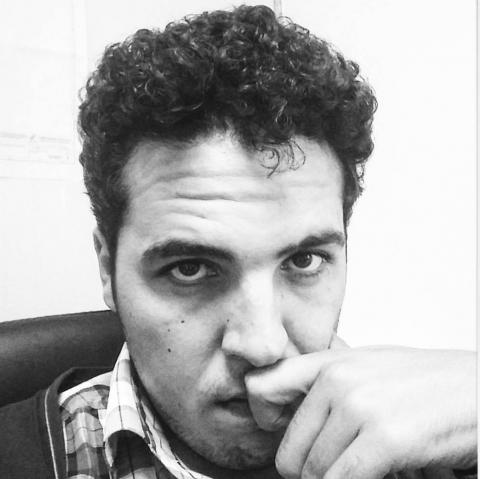Interview with Longlisted Author Mohammed Alnaas
17/03/2022

When did you start writing Bread on the Table of Uncle Milad and where did the inspiration for it come from?
The inspiration came in the Winter of 2018, from a popular Libyan proverb I’ve often heard, which says: “a family whose uncle is Milad”. In a moment of revelation, I imagined the story of that uncle and his family. I immediately began to write it and continued for a month, then stopped. I had failed to unravel the mystery surrounding the character and his story. I tried again at the end of December 2019, using a different style, but after writing no more than two pages, stopped again. I knew that there was something missing in the novel. I had the historical knowledge, but lacked the other ingredient of knowledge, the “bread”. In 2020, the world entered a global pandemic, which coincided with my stopping work and my determination not to work outside the spheres of literature and writing. I began to learn the techniques of the “bread” and study the theoretical aspects of writing. Every day I would sacrifice almost a kilo of flour and hours of practice, bread, waiting and writing. I’d note down comments. When my skills had developed in the “bread”, I felt reassured about writing the novel. In April 2020, I wrote the first line. The story took shape before me without effort on my part, and I would get lost in it for an entire day.
Did the novel take long to write and where were you when you finished it?
The stage of actual writing took six months. After that, there was extensive rewriting and editing, which took a month. I would work at it daily, for more than twelve hours at a time. I was living in my flat in Tajoura, the eastern suburb of the city of Tripoli, enduring frequent power cuts which lasted for hours, hearing the sounds of the guns and bombardment, and news of death from illness and war. The novel and the “breadmaking” were my refuge from going mad.
How have readers and critics received it?
To be honest, the novel hasn’t reached my public until now, but I have sent it to readers close to me whose opinion I trust. They have praised it and made me feel confident about its future, independent of me.
What is your next literary project after this novel?
I am someone who’s besieged by an endless stream of ideas and lack of time. I am now working on a novel whose events take place in the same village as Uncle Milad’s. It’s about the character of Lutfi, the director who has returned from the diaspora to his home country. It’s a novel which deals with weightier and richer subjects than those in Bread on the Table of Uncle Milad. It explores the Libyan identity, what makes a person Libyan. It’s set in different time periods, from the United Kingdom of Libya to the final years of the Libyan Arab Republic, that is, sixty years of the deep Libyan wound. I am writing the novel with support from the Libyan Arete Foundation. As soon as I have finished that, I have other projects. I hope that God will keep me safe until then.
